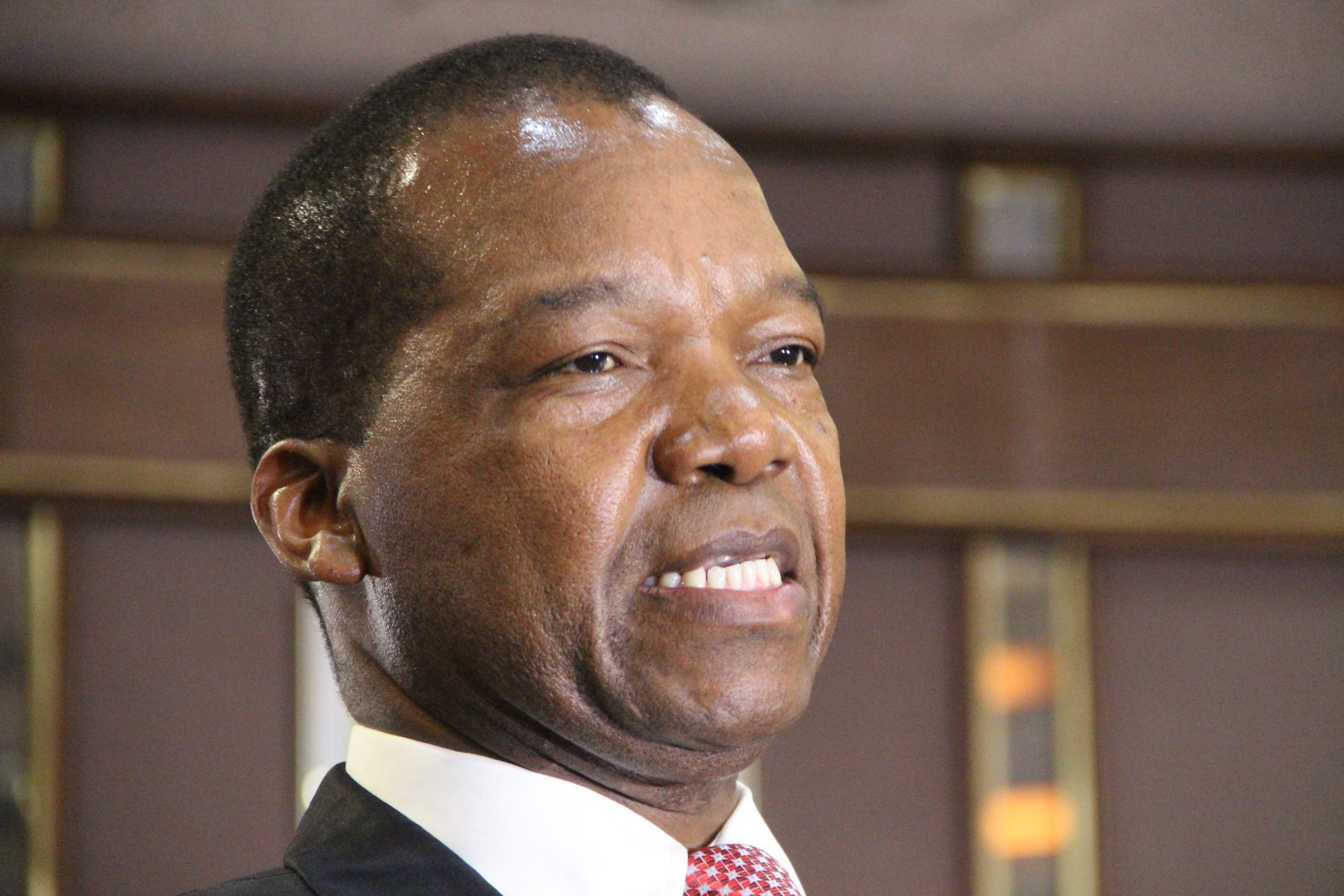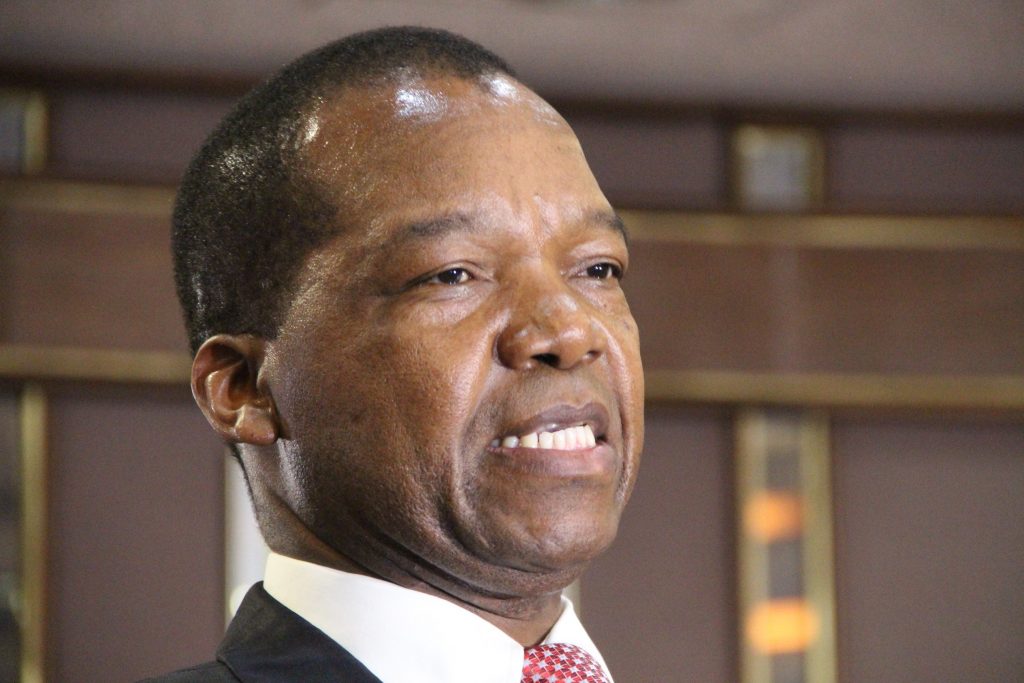 Reserve Bank of Zimbabwe governor John Mangudya’s tenure is likely to be extended for a second and final term because President Emmerson Mnangagwa is happy with his performance presidential spokesman George Charamba said.
Reserve Bank of Zimbabwe governor John Mangudya’s tenure is likely to be extended for a second and final term because President Emmerson Mnangagwa is happy with his performance presidential spokesman George Charamba said.
There has been wide speculation that Mangudya’s term of office will not be extended. The online media was awash with news that his successor identified as Andrew Bvumbe had already left his job with the World Bank.
‘‘The President is very clear on the Reserve Bank Governor’s tenure and his performance. Not only is he there to stay but the President is about to renew his contract for a second tenure,’’ Charamba said according to the Herald online.
Mangudya took over as central bank governor from Gideon Gono in May 2014.
The governor serves a five-year term and can only serve a maximum of two terms.
Gono presided over the demise of the Zimbabwe dollar and the highest inflation in the country’s history.
Mangudya introduced bond notes which were supposed to be at par with the United States dollar but plunged at the beginning of last month after he re-introduced foreign currency accounts.
The Permanent Secretary for Finance George Guvamatanga said foreign currency accounts were reintroduced to protect those with access to free funds because banks were disadvantaging the owners of the funds.
“The separation of FCA accounts and RTGS accounts was necessary as the singular system was now disadvantaging those with access to free funds, such as NGOs, exporters and those who receive money from the Diaspora,” the told the Parliamentary Committee on Finance.
“If you receive $200 you shouldn’t be forced to rush to spend it because there is nowhere else to keep it or keep it under your pillow because there is no separation. So to protect those with access to such funds, it was very important to separate so that there is no confusion.”
Guvamatanga who was managing director of Barclays Bank Zimbabwe at one time said the banks were also using underhand tactics to get some of the foreign currency that was coming into the country.
“I know – I come from the banking sector,” he said. “In the past, if you received money from the diaspora or from whatever source some banks would tell you that you can now access 70% of your money because the Reserve Bank said we should take the other 30%, which was not true.
“So there was an element of market indiscipline that was now starting to creep in and discouraging those with access to US dollars from bringing it into the formal system and we were trying to address that.”
(120 VIEWS)


